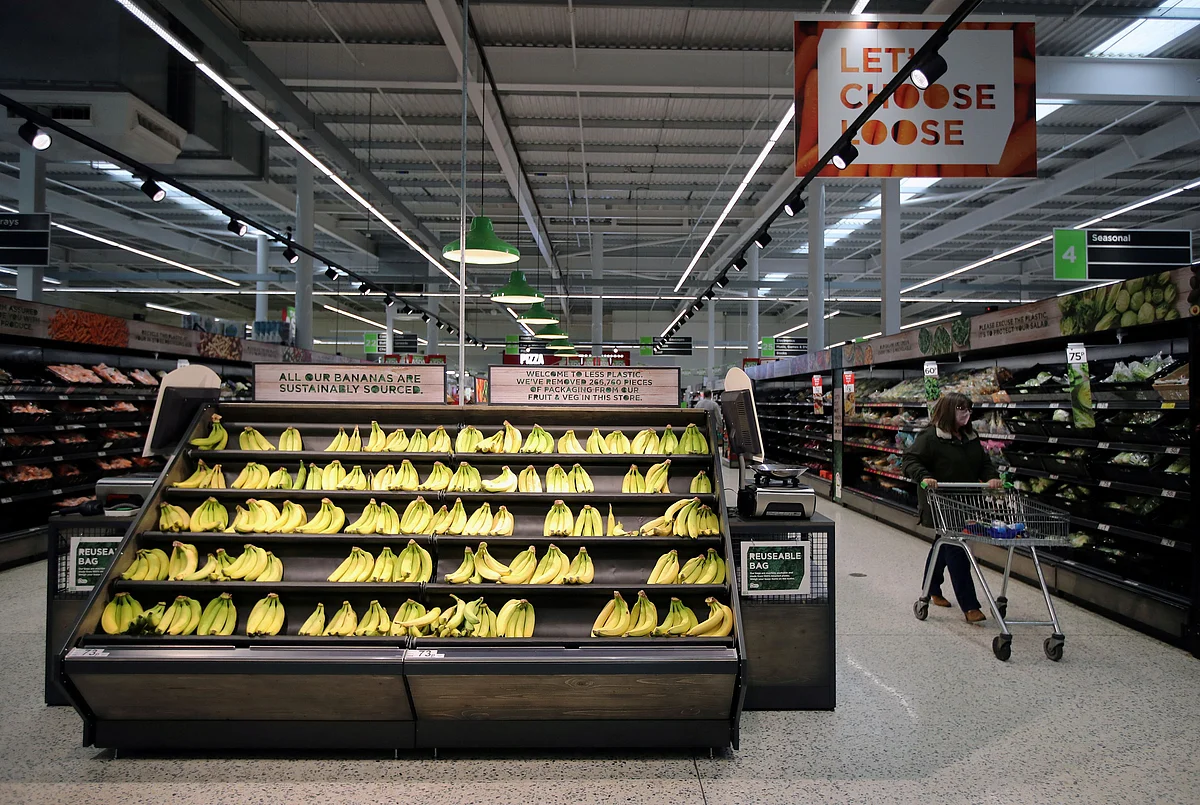
UK Inflation Holds At 3.8%, Highest Among Big Rich Economies
British inflation held at 3.8% in August, the highest of any major advanced economy, according to official figures that underscore why investors believe the Bank of England is unlikely to cut interest rates again this year.
High inflation is a problem for Britain's government as well as the BoE. Finance minister Rachel Reeves said last week that fellow ministers should focus on helping the central bank to slow price growth as well as boosting economic growth.
Recommended For YouInflation for consumer services - closely watched by the BoE as a gauge of domestic price pressures - slowed to 4.7% from 5.0% in July, the Office for National Statistics said on Wednesday.
Core inflation, which excludes energy, food and tobacco prices, fell to 3.6% from 3.8%.
Most economists polled by Reuters and the BoE had forecast that the headline measure of inflation would hold at 3.8%.
Sterling and British interest rate futures were little changed by the ONS data.
BANK OF ENGLAND CONSTRAINED ON RATE CUTS
The BoE is expected to hold its benchmark interest rate steady at 4% on Thursday after lowering it by 25 basis points in August. The Monetary Policy Committee's 5-4 split vote last month suggested the central bank might slow its already gradual pace of rate cuts due to persistently above-target inflation.
Wednesday's figures showed petrol prices and the cost of hotels and restaurants were the biggest contributors to August inflation. That was offset by a slower rise in transport costs, particularly airfares which have been volatile in recent months.
Prices for food - which the BoE sees as key for the public's inflation expectations - and non-alcoholic drinks were 5.1% higher in August compared to a year ago, after a 4.9% rise in July.
Last month, longer-term inflation expectations among the public rose to the highest since 2019.
British inflation is higher than in the United States where it increased to 2.9% in August and in the euro zone where it rose to 2.1%, just above the European Central Bank's 2% target.
The BoE has forecast that British inflation will reach 4% in September and stay above its 2% target until the spring of 2027.
While Britain's labour market has loosened, it continues to put upward pressure on prices. British wage growth slowed in the latest data, but at 4.8% for basic pay it remains too high for the BoE to take much comfort from the inflation outlook.
However, official data last week painted a downbeat picture of Britain's economy, recording just 0.2% growth in the three months to July.
"We still expect the looser labour market to weaken wage growth and eventually bring down UK inflation to similar rates as in the U.S. and the euro zone," Paul Dales, chief UK economist at Capital Economics, said.
That would allow the BoE to cut rates from 4.0% now to 3.0% by the end of next year, Dales said.
"But we think the upside inflation risks are just too high for the Bank of England to cut interest rates tomorrow or, more significantly, at the following meeting in November," he added.

Legal Disclaimer:
MENAFN provides the
information “as is” without warranty of any kind. We do not accept
any responsibility or liability for the accuracy, content, images,
videos, licenses, completeness, legality, or reliability of the information
contained in this article. If you have any complaints or copyright
issues related to this article, kindly contact the provider above.

















Comments
No comment